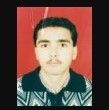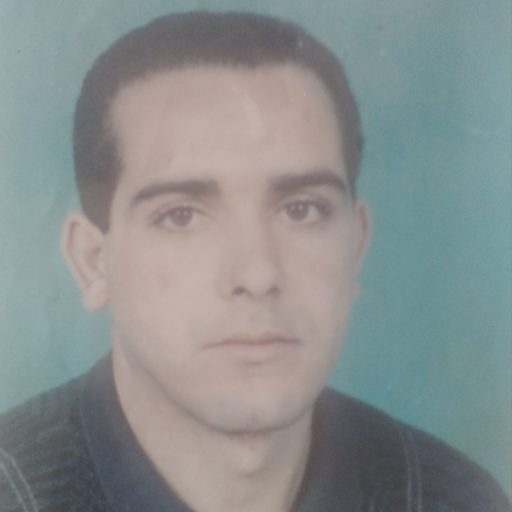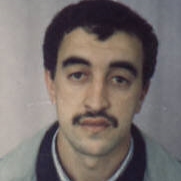
Rachid Sassene
Date of arrest: 1996-05-18
Forces responsible: Police
Summary
On May 18, 1996, a group of more than 20 uniformed and plainclothes policemen burst into the Sassene family’s home in Constantine. Acting in a violent manner, they arrested Rachid Sassene, who was suspected of involvement with the Islamic Salvation Front (FIS). At the time, the Sassene family was in the process of moving, and Rachid Sassene’s wife was at the new house. Immediately after arresting him, the group of policemen made their way to the new house in order to arrest his wife. The latter stated that she was subjected to ill-treatment by the security officers, who hurled insults at her, bound her hands, blindfolded her, shaved her head and proceeded to drag her barefoot down the stairs. Some neighbours claim to have seen Rachid Sassene, who was blindfolded and kept standing outside a police car, at the site. According to Rachid Sassene’s wife, their new home was then looted and ransacked during the raid.
She was held for two weeks in the same prison as her husband but in a separate cell. She maintains that she was able to speak with him during her detention and had been able to do so until June 3, 1996, when she was released. Since then, she has never had any further contact with, or news of, her husband.
On December 21, 1997, his wife was convicted by the criminal division of the Constantine Court of Justice and given a suspended sentence of six months’ imprisonment for “supporting a terrorist group”. Contrary to an official report issued on April 27, 1997, the judgement stated that her husband had indeed been “arrested”.
Steps taken
After June 3, 1996: Rachid Sassene’s wife visits the Constantine prefecture to report to the Public Prosecutor that her husband is missing.
April 27, 1997: His wife receives an official report from the Criminal Investigation Department of the Constantine prefecture notifying her that the investigation yielded no results and that Rachid Sassene “had never been summoned by the Department”.
February 5, 2000: After Rachid Sassene’s father initiated procedures with the Constantine prefecture, he receives a brief letter from the Ministry of Interior informing him that the “investigations had not succeeded in ascertaining the whereabouts” of Rachid Sassene.
March 2, 2001: After contacting the National Observatory for Human Rights, his wife receives a letter from the Observatory stating that her husband had never been sought or arrested by the security services. She later contacts the Public Prosecutor in order to obtain information regarding her husband’s fate.
March 11, 2001: The Criminal Investigation Department of the Constantine prefecture issues a new official report, in which it is stated for the first time that Rachid Sassene had been “eliminated by the security forces […] on 19 May 1996”, which was the day following his arrest, and in spite of the fact that his wife claims to have conversed with him in the course of her detention, which lasted until June 3, 1996.
February 27, 2006: The Ordinance No. 06-01 implementing the Charter for Peace and National Reconciliation enters into force. On that basis, Rachid Sassene’s wife requests the gendarmerie to produce a certificate attesting to her husband’s disappearance.
June 17, 2006: The gendarmerie issues a certificate stating that Rachid Sassene had died as a member of terrorist groups on May 18, 1996, one day prior to the date of death recorded by the Criminal Investigation Department in its official report dated March 11, 2001.
July 11, 2006: The El-Ziada Division of the Constantine Court of Justice orders the registrar to register the death of Rachid Sassene, as “considered to have died in Constantine in 1996”.
September 9, 2006: A death certificate is issued pursuant to the decision dated July 11, 2006 containing the same inaccuracy concerning the date of Rachid Sassene’s death.
December 10, 2010: Having exhausted all the domestic remedies, Rachid Sassene’s wife seizes the Human Rights Committee.
Decision of the Human Rights Committee
Right to an effective remedy (including in relation to the author), right to life, prohibition of torture and cruel or inhuman treatment (including in relation to the author), right to liberty and security of person, respect for the inherent dignity of the human person, recognition as a person before the law and unlawful interference with the home.
The State party must provide the author and her family with an effective remedy, including by: (a) carrying out a thorough and effective investigation into the disappearance of Rachid Sassene and providing the author and her family with detailed information about the results of its investigation; (b) releasing Rachid Sassene immediately if he is still being held incommunicado; (c) in the event that he is deceased, returning his remains to his family; (d) prosecuting, trying and punishing those responsible for the violations that were committed; (e) providing adequate compensation to the author for the violations perpetrated against her, and to Rachid Sassene, if he is alive; and (f) providing appropriate satisfaction for the author and her family. Notwithstanding the terms of Ordinance No. 06-01, the State party should ensure that it does not impede enjoyment of the right to an effective remedy for crimes such as torture, extrajudicial killings and enforced disappearances. The State party is also under an obligation to take steps to prevent similar violations in the future.




